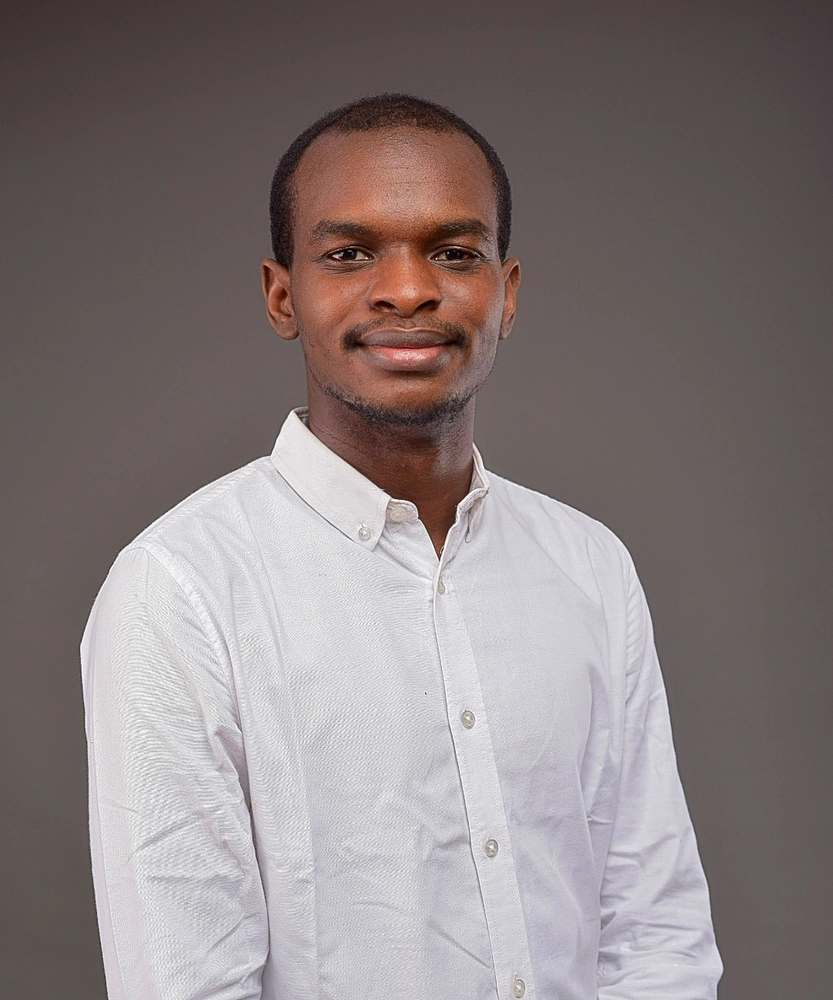
Biochemistry PhD candidate ‘Fola Adesanya has been awarded a 2025 predoctoral fellowship from the American Heart Association to support his research into the role of mitochondrial dysfunction in the pathogenesis of heart defects seen in myotonic dystrophy type 1 (DM1). Adesanya studies how mitochondrial dysfunction contributes to the development DM1 heart symptoms while exploring novel treatment options targeting these mitochondrial defects. From his medical training at the University of Ibadan in Nigeria to his current work on DM1-induced cardiac mitochondrial dysfunction at Illinois, Adesanya is interested in understanding how diseases work at a molecular level and the development of new potential treatments.
A third-year PhD candidate, Adesanya found an ideal home for his research pursuits in the lab of Professor of Biochemistry Auinash Kalsotra.
“I was lucky enough to find a really good lab that does work with translational potential,” he said. “My mentor, Dr. Kalsotra, is very supportive of not just my work in his lab but also of my career goals, and my lab members are people I learn from and bounce ideas off of. That has been the highlight of my time in Illinois so far.”
Although the lab already had several heart-related research projects, mitochondrial dysfunction was a step in a new direction in the Kalsotra lab. When Adesanya joined, Dr. Kalsotra wanted to explore a new idea, which the lab already had the necessary resources to support. Through his experiments, Adesanya found exciting results that helped kickstart his current project.
Through his work, he hopes to identify and develop new treatment options targeting cardiac mitochondrial defects for myonic dystrophy type 1. While DM1 is often associated with skeletal muscle weakness, three in four DM1 patients also develop severe heart problems, including arrhythmias, cardiomyopathy and heart failure. Using a mouse model that allows researchers to turn the disease on and off specifically in the heart, Adesanya studies how mitochondrial structure and function are affected in the hearts of these animals. His goal is to develop RNA-based therapeutics that could reverse mitochondrial dysfunction and improve heart function in DM1 patients.
For Adesanya, the two-year fellowship represents not only a validation of his hard work and dedication in the Kalsotra lab, it also provides a meaningful opportunity to advance his research.
“Receiving this fellowship allows me to fully dedicate myself to my work in the lab,” he said. “It’s also a recognition of the work our lab does and of the broader field of myotonic dystrophy. This shines a light on the impact of myotonic dystrophy in the heart, which isn’t always the first thing people think of, regarding this disease.”
Adesanya’s desire to conduct research began during his medical training at the University of Ibadan in Nigeria, where he completed his MD. While his medical education in Nigeria focused on clinical practice and patient care, Adesanya found himself drawn to the foundational science behind medical breakthroughs.
“I’ve always been interested in not just the practice of medicine, but also in understanding how many of the significant advances that eventually make their way to the clinic were initially developed,” Adesanya said. This curiosity led him to pursue a PhD in Biochemistry at Illinois.
As Adesanya continues his research, he remains grateful for the opportunities he’s had on campus.
“I’ve learned so much here, and I’m excited to see where this work takes me,” he said.
Adesanya’s advice for students pursuing a similar path?
“You can be the smartest person in the room, but having a supportive environment is what really helps you succeed,” he said. “Also be sure you put in the work, stay late if you need to, and keep hoping for the best.”

